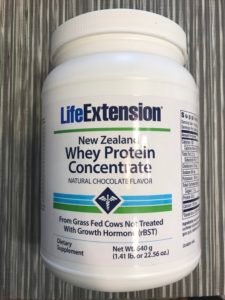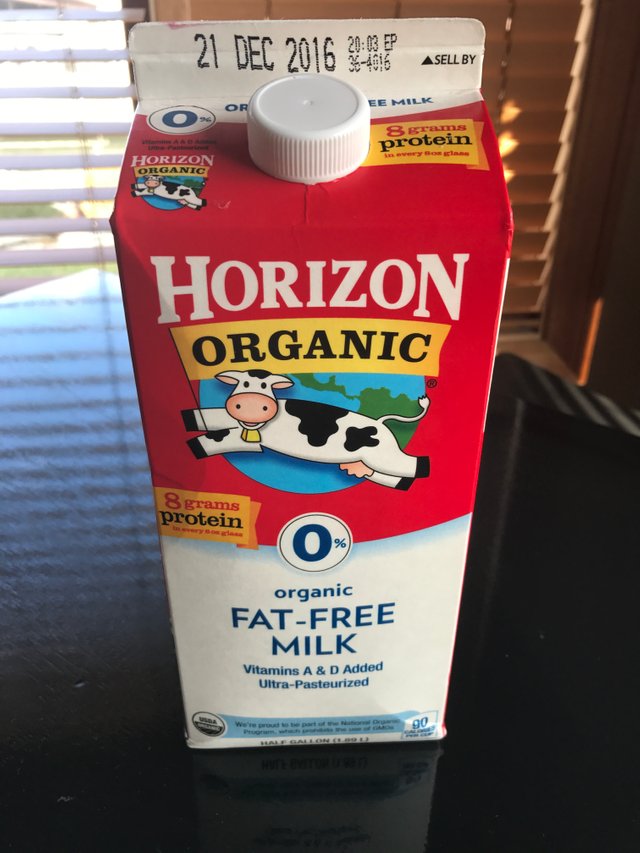Top 10 Nutrition Lies
The world is filled with nutrition lies.
Everywhere you look you will see them. On the morning news, in the newspaper, even on popular fitness blogs. I don't know whether it's a lack of education or a blatant disregard of the truth.
The problem is people listen to these lies. They follow what they are told trying to improve. Ultimately not improving at all or getting worse.
How sad? People are trying to get better and these "leaders" in the fitness/nutrition industry are holding them down.
Not here. We focus only on the core principles. That trendy nutrition advice will be here today and gone tomorrow. We are here for the long haul.

10 Biggest Nutrition Lies
Calories Don't Matter
I have a confession.
I used to believe this. It seemed like so many people where writing about it so it must be true. These "thought leaders" had found a way to hack your metabolism. They found a way to not worry about calories. I was hooked.
I never paid attention to calories. I ate fat and protein and limited my carbs. I would have a 600 calorie morning coffee because I thought I need to eat fat to stimulate my brain. I worked out like crazy and ate exactly like these "thought leaders" told me.
Guess what? Did I get shredded? Hit my goals? Hack my metabolism?
No. I stayed exactly where I was. No change.
I worked as hard as I could in the gym and in the kitchen only to go no where. The common response from "thought leaders" would be I must be doing something wrong. My food timing was wrong or the toxins in my coffee where feeding the bad bacteria in my gut. The rabbit hole goes deep with this kind of dieting.
At the end of the day the problem wasn't with me. My diet was sound. Fat, protein and (somewhat) limited carbs is a diet I excel on. The problem was I wasn't tracking calories. You can eat all the right foods, but if you maintenance calories are 3,000 a day and you're eating 3,500 calories a day you will gain weight.
I started tracking my calories. I got rid of the 600 calorie fat bomb coffee for breakfast and portioned out my calories for the rest of the day.
The fat dripped off me. It was like I found the holy grail of nutrition.
In reality I listened to the first core principle of nutrition: Calories Matter.
Too Much Protein is Bad for You
This is not an attempt to convince vegan and vegetarians to eat meat. God knows that is a lost cause and I will not waste my words in that argument.
The nutrition lie here is that the average omnivore (eats meat and veggies) believes too much protein is harmful.
The common misconception is that protein damages your bones and kidneys. Specifically that protein is acidic which causes your body to remove basic compounds from your bones to neutralize the acid resulting in osteoporosis. And that protein causes a build up of nitrogen waste products which are harmful for your kidneys to filter.
Neither of these claims have ever been scientifically proven. Long term studies have shown protein to strength bones. The only time protein can be harmful to your kidneys is if they are already damaged. Unless you are 80 your kidneys are fine. It is there job to filter objects in your body, including protein.
About this time someone will shout out that protein causes cancer. The people shouting the loudest are the editors writing newspaper and blog headlines.
Steak causes cancer is a powerful lead story.
We have to clean up another false lie. Red, processed meat has been linked to colon cancer. Not protein and not all cancers. Notice the word processed. If you eat hot dogs and lunch meat everyday of your life your risk of colon cancer may increase. The problem is that no has been able to separate red meat in clinical trials to know if it is the true culprit. More research is need.
The trick to not getting colon cancer? Eat unprocessed red meat and don't char it (burn/blacken the meat). Eliminating those two things will take the risk out of getting cancer.
Protein should be the foundation of any diet. It is the most important macronutrient and should not be decreased below recommend levels.

Breakfast is the Most Important Meal of the Day
This one must be true. How many times have we be told to eat our breakfast?
The fact is there has never been any proof that eating breakfast causes weight loss or improves mental performance. I would argue the opposite.
You don't need breakfast. Eating breakfast is a habit, like brushing your teeth. You wake up and reach for the bowl of cereal because that's what you did the day before.
And the day before that, and the day before that, etc.
I was the same way. It was such an entrenched habit for me I even would eat after a nap. Because my brain associated waking up with food, even if I wasn't hungry.
I'm not telling you to skip breakfast. Some people do well with breakfast, others should skip it. I challenge you to experiment. Skip breakfast for a week and see how you feel. I have more mental clarity in the morning when I don't eat until noon. I know other fitness professionals who function worse without breakfast. Experiment for yourself, don't accept the conventional wisdom.
One thing is for sure. Don't eat cereal for breakfast. Avoid heavy carbs in general. Stick to the old fashioned meat and eggs.
Saturated Fat is the Enemy
There is a long history with saturated fat. So long I'm not going to go through it in this article. But the past 40 years fats and saturated fat have been vilified.
Saturated fat is essential for our bodies. We need it to form the membranes of our cells and to make hormones. The links to heart disease and cholesterol are invalid. What we replaced fats with, carbs, are far more likely to increase the incidence of heart disease.
The real culprit here should be hydrogenated, trans fats. These are the fats that are man made, think of margarine. You want to eat more natural fats. Olive oil, Coconut oil, MCT oil, and butter are great places to start.
Boost Your Metabolism with Many Small Meals
Scientifically this one just doesn't make sense. If you are eating 3,000 calories why would it matter if you ate two 1,500 calorie meals vs. five 600 calorie meals?
It doesn't, your metabolism is always on. Breaking you food into smaller meals does not "stoke the fire" or promote any other inaccurate analogy. Your metabolism will be the same whether you are eating ten meals a day or one.
How you eat is all about personal preference. If you like six meals a day go ahead, but it isn't necessary.
Don't eat Grains
"Our ancestors didn't eat grain" - common thought leader speak.
First, scientist have found artifacts suggesting humans ate grain at long as 40,000 years ago. Much longer than the currently suggest 10,00o years. Which would still be a long enough time to adapt to eating a food.
Second, have you noticed the rise of gluten intolerance and celiac disease over the last 10 years. These two disease were unheard of before, but now dominate the nutrition scene. We all have a friend who one day proudly announced they where "gluten intolerant" and pushed the bread basket away.
Celiac disease is the real thing. People who have this disease must stay away from gluten or risk intense intestinal pain. However, less than 1% of the population has Celiac disease. Gluten intolerance is a vague term that we don't have a concise definition for. Let us say gluten intolerance is when bread hurts your tummy.
How do you know if you have a gluten intolerance?
It's simple.
Do you get stomach aches often?
No? Then you don't have a gluten intolerance. Congrats you are not a special snowflake.
Yes?
Is it after you consumed gluten contain products (bread, etc.)?
Yes? Then make an appointment with your doctor. You may have a gluten intolerance. Sorry you may be a special snowflake.
Don't Drink Milk
"Humans are the only animals that drink the milk of another species" - common Paleo thought leader speak.
It's ok to eat other parts of the cow, but not drink it's milk?
Using this logic we shouldn't eat any part of the cow. Since we drink human milk maybe just stick to eating humans.
Ok, maybe I'm taking the counter argument to the extreme but you get the point.
And yes animals in the wild are know to steal other species milk when available.
Milk should be a staple of the diet. Not an outcast.
Certain populations are intolerant to the lactose in milk. When we are infants we have an enzyme that breaks down lactose. In some cultures where milk is not continued past early childhood that enzyme is turned off. As a result the lactose builds up in our gut and is only broken down by bacteria that secret gas as a by product. This is why people get gassy after consuming diary products.
Again what is a simple test to determine if you are lactose intolerant?
Are you gassy or does your stomach hurt after drink milk or eating dairy products?
No? Congrats again you are still not a special snowflake.
Yes? Sorry you are a special snowflake.
But there are a number of lactose free dairy options. You just buy those instead.

Reduce Your Sodium Intake
If you are not salt sensitive then no one cares about your sodium intake.
This one of the most overblown health myths out there. A small percentage of the population is sensitive to salt which causes their blood pressure to be higher then it should be. If salt is not controlled long term consequences can develop.
If your blood pressure normal then don't worry about it.
If your blood pressure is high, but you are over weight then lose the weight first and monitor again.
If your blood pressure is high, you aren't overweight, and you are black chances are you may be salt sensitive. It's the luck of the genetic draw that black people are at a much higher risk of being salt sensitive then the rest of the population.
Fat Makes You Fat or Eat All the Fat You Want
Both statements are false to a certain extent.
We must understand metabolism first in order to see the true picture.
There are two pathways in your body for fat. Either to be used by the body or stored. Your body uses fat for cell membranes, hormones, and it can be broken down for energy. If any fat is left over unused it is stored in your body for a later time. This is a fluid process as your body is always breaking down and re-storing fat.
Yes, it is true. Fat makes you fat. With one caveat. Only excess fat and calories result in fat being stored. If you are eating above your daily calorie goal you will store more fat. If you are eating below your calorie goal your body will tap into your stored fat for energy, decreasing the amount of fat you carry.
You may think of removing fat all together. If you don't eat fat then none can be stored. But, fat is essential to our bodies. You need it for every cell in your body. In addition, carbohydrates can be converted to fat in your body if fat is restricted.
With anything in nutrition excess is what we try to avoid.
Only follow "Paleo", "Low-Carb", "Intermittent Fasting", etc.
As a culture we love diets.Diets often has negative feelings associated with it, but people go crazy when a new diet trend appears.
Paleo, Vegan, Vegetarian, Atkins, Zone, Mediterranean, Weight Watchers, South Beach, Raw Food, Ketogenic, Intermittent Fasting, Slow Carb, Low Fat, High Fat, DASH, Flexitarian, Ornish, Flat Belly, etc.
The list grows every year.
People try every diet. Zig Zagging back and forth between different ones. When a new diet comes out it offers the hope that this time, this diet, will be the one that helps them reach their goal.
There is no perfect diet.
Remove that thought from your head. Each one has its pro and cons. Ultimately you have to eat for you. Eat what you like and keeps calories under control.
Those are the only two variable you should worry about: eat what you like and hit your calorie goal.
Once you have that down we can dive deeper. But every diet will ultimately fail if you don't eat foods you like and control calories.